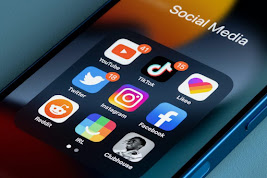My relationship with technology has been nothing but toxic and unhealthy. And I’m well overdue for a breakup.
Our connection started off very innocent and platonic, but it soon became very obsessive. I was hooked, but worst of all, I was codependent.
It took years for me to break free from the chains technology placed around me, but still, from time to time, I feel myself sinking back in.
I know I am not alone in this, either. The rise of technology has plagued society ever since I can remember.
Social media use is at an all time high right now. In 2022, it was reported that 95% of teenagers use Youtube, 67% watch Tiktok, 62% browse Instagram, and 59% use Snapchat.In high school, I was completely and utterly consumed by my phone. If I was not texting or FaceTiming my friends, I was scrolling through social media. I never missed a beat.
I did not realize it at first, but my online engagement really affected my overall demeanor.
I allowed my mood to be determined by the amount of likes and comments I received on my posts, and I let my self-worth be dictated by social media stars who did not even know I existed. I gave social media power over me.
As an impressionable teenage girl, it is easy to get lured into the seemingly perfect lifestyle that social media advertises. From the polished wardrobes to the flawless appearances to the picture-perfect relationships, it is no wonder why so many teenagers feel a sense of adequacy when using social media sites.
The Pew Research Center confirmed this in their 2022 survey by sharing that 40% of teenagers are reluctant to post on social media due to a fear of “embarrassment.” Young people might be more likely to post online if it were not for the unrealistic standards set by influencers.It is no secret that the fear of judgment dictates the decisions of most young adults. But on the topic of social media, that is the least of their concerns because one of the most prevalent issues that teenagers face with technology is mental health.
Specifically, a 2019 study conducted on over 6,500 12-15 year olds found that those who use social media for over three hours a day may be more susceptible to developing mental health issues. This can be narrowed down to the posts they view and the comments they read. Although the internet can be a source of knowledge and positivity at times, many of the posts and comments made on social media can be deemed as fake or hateful.
To further drive home this point, a 2015 study discovered a link between depressive symptoms and social comparison through social media usage. The age of adolescence is a very important developmental phase for young people, and social media is severely impacting that by lowering self-esteem, encouraging online validation, and triggering mental illnesses.Social media was created with the intent to give users an outlet to express themselves through posts, reconnect with old friends, and interact with people of diverse backgrounds. It is sad to see the turn it has taken since then.













